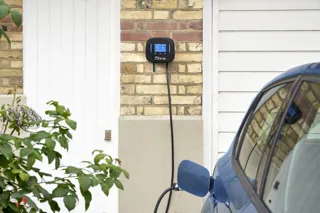Ashley Barnett, head of fleet consultancy at Lex Autolease,
Over the past few years, we’ve seen an impressive growth in the number of people choosing an electric vehicle (EV).
Last year alone, more than 190,000 new EVs were registered in the UK, accounting for 12% of the new vehicle market.
The figures demonstrate that businesses and drivers alike are becoming increasingly aware of the pressing need to reduce emissions on our roads, in order to achieve net zero.
EVs are typically more expensive than their internal combustion engine (ICE) counterparts, making the investment cost or leasing price higher.
With the recent withdrawal of the plug-in car grant, which helped bring greater cost parity between EV and traditional ICE vehicles, this gap will now widen once more, and the issue is being compounded by global concerns such as supply chain availability and rising inflation.
However, fleet managers should be viewing the total cost of operating a vehicle or whole life cost (WLC), not just in terms of the initial upfront price, but over the whole life of the leasing term.
For example, by taking into consideration the costs they will have to reimburse employees for, such as fuel and employer’s national insurance, as well as maintenance.
By taking this approach, EVs can be more affordable overall than the ICE equivalent
Adding it up
There’s no doubt that the current high fuel prices are altering perceptions when it comes to fleets switching to EVs.
While fuel cards or hedging can help secure lower petrol and diesel prices, it’s clear that further cost savings can be made if businesses are open to switching to EV.
Despite the recent change in the electricity price cap, and even with it set to rise once more in October, there can still be a clear benefit to using electricity over petrol or diesel when the rising price of fuel is taken into consideration.
Another expense drivers of some ICE vehicles will have to be reimbursed for over and above their EV-driving colleague is emissions charges.
With clean air and low emissions zones already in force in London, Bath, Birmingham and Portsmouth, and planned for a range of other areas including Bradford, Bristol and Tyneside, drivers of older and higher polluting vehicles will be charged to travel within the areas.
As zero emissions vehicles, EVs are completely exempt from these charges, representing an additional cost saving for businesses operating within these areas.
EVs also benefit from a number of fiscal incentives. As well as being exempt from vehicle road tax, benefit in kind (BIK) tax rates are just 2% (fixed until April 2025), compared with up to 37% for the highest emissions ICE vehicles, making them an attractive option for employees.
EVs can also be cheaper to service, maintain and repair than ICE vehicles.
Simply put, there are fewer parts in an electric engine that can become damaged or worn down, while regenerative breaking, where the electric motor is used to slow, places less strain on the brakes.
EVs also don’t require diesel particulate filters (DPFs) or reducing agents such as AdBlue, both of which require ongoing maintenance and come at a cost.
All of this means that EVs can be up to 50% cheaper to maintain.
Beyond the bottom line
With an increasing choice of new EV models coming to the market there are now more than 500 car models to choose from, and with improvements in range, technology and the UK’s charging infrastructure network, being able to offer employees an EV is a valued benefit that can help attract and retain talent.
In addition, making the transition to electric is a good way for businesses to demonstrate that they are an environmentally conscious company – a factor which is increasingly impacting recruitment, as well as external investment.
Alongside the clear environmental and reputational benefits, there are compelling financial reasons to transition a fleet to electric, with savings reflected down the line in WLCs.
Considering the WLC of a vehicle dispels the long-propagated myth that going green is a more expensive option for a fleet and shows that sustainability and cost savings can go hand in hand.
> Interested in comparing electric vehicle data? Check out our EV tool.
> Interested in ensuring the efficient use of EVs. Check out our dedicated editorial sections: Insight & policy | EV news | Charging & infrastructure | Costs & incentives | Benefit-in-kind | EV case studies | EV road tests





















Login to comment
Comments
No comments have been made yet.